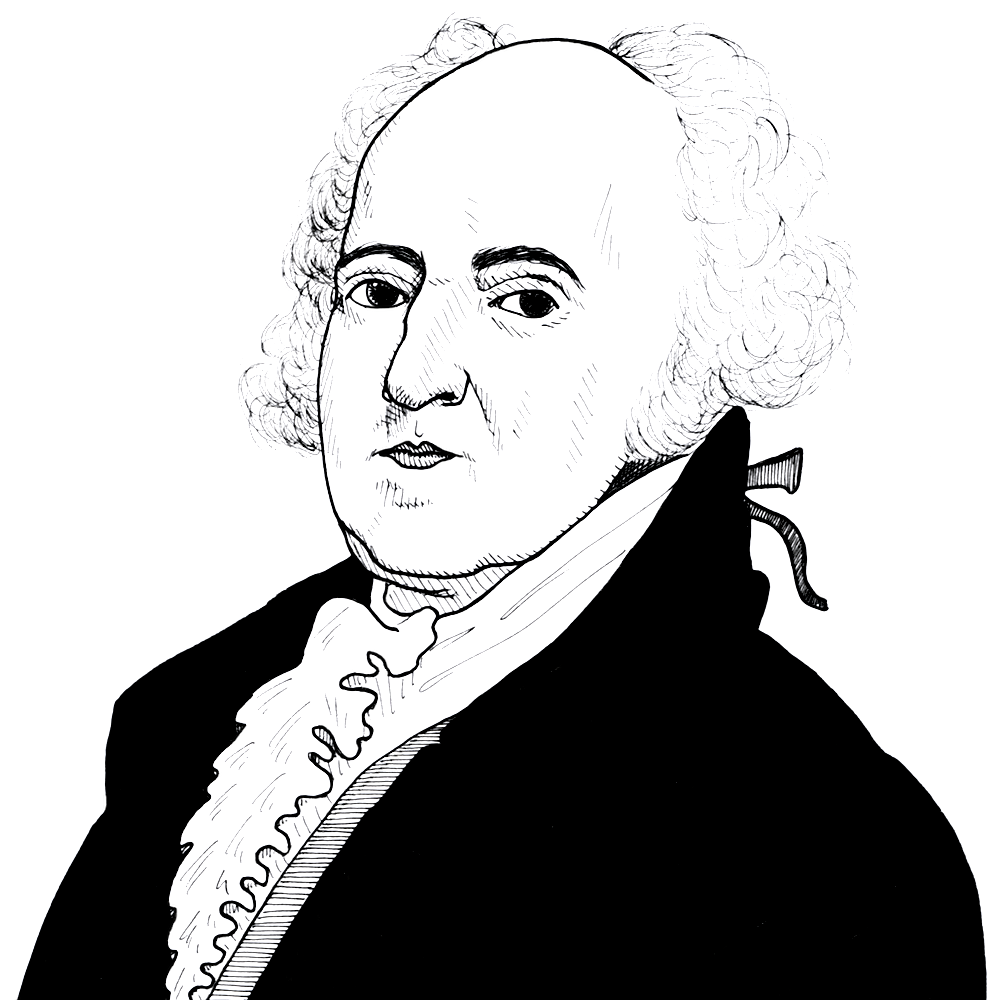
Adams and Jefferson reflect on the Revolution and the future of liberty (1823)
Found in: The Works of John Adams, vol. 10 (Letters 1811-1825, Indexes)
John Adams (1735-1826) and Thomas Jefferson (1743-1826) both died on July 4, 1824 within hours of each other. In their last years they corresponded about the future of liberty and the role of revolution in bringing free societies into existence. We include here extracts from three letters which they wrote in August and September 1823 on this topic:
Revolution
Adams to Jefferson, Quincy, 15 August, 1823: I am no king killer, merely because they are kings. Poor creatures! they know no better; they sincerely and conscientiously believe that God made them to rule the world. I would not, therefore, behead them, or send them to St. Helena to be treated like Napoleon; but I would shut them up like the man in the mask, feed them well, and give them as much finery as they please, until they could be converted to right reason and common sense.
Jefferson to Adams, Monticello, September 4, 1823: The generation which commences a revolution rarely completes it. Habituated from their infancy to passive submission of body and mind to their kings and priests, they are not qualified when called on to think and provide for themselves; and their inexperience, their ignorance and bigotry make them instruments often, in the hands of the Bonapartes and Iturbides, to defeat their own rights and purposes. This is the present situation of Europe and Spanish America. But it is not desperate. … The kings and the rabble, of equal ignorance, have not yet received its rays; but it continues to spread, and while printing is preserved, it can no more recede than the sun return on his course. A first attempt to recover the right of self-government may fail, so may a second, a third, &c. But as a younger and more instructed race comes on, the sentiment becomes more and more intuitive, and a fourth, a fifth, or some subsequent one of the ever renewed attempts will ultimately succeed.
Adams to Jefferson, Quincy, 17 September, 1823: It is melancholy to contemplate the cruel wars, desolations of countries, and oceans of blood, which must occur before rational principles and rational systems of government can prevail and be established; but as these are inevitable, we must content ourselves with the consolations which you from sound and sure reasons so clearly suggest. These hopes are as well founded as our fears of the contrary evils. On the whole, the prospect is cheering. I have lately undertaken to read Algernon Sidney on Government There is a great difference in reading a book at four-and-twenty and at eighty-eight …